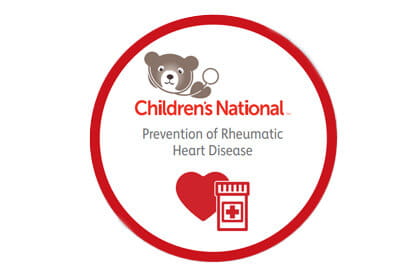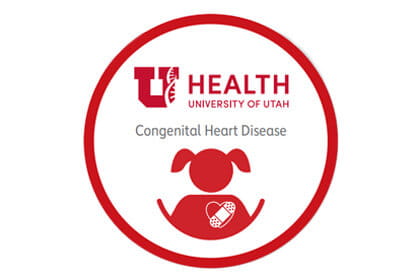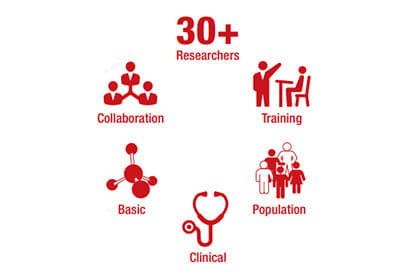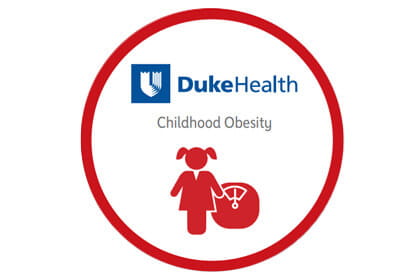Childrens 2017 to 2021
AHA’S INVESTMENT 2017-2021
$15 MILLION IN RESEARCH |$3.7 MILLION TO EACH CENTER





By The Numbers
- 47 subsequent grants totaling $61.7M, three of which were awarded to network fellows
- 55 publications to date, including articles in JAMA, JAMA Pediatrics, and Circulation Research
- Collaboration and co-authorships between Centers increased nearly 4-fold over the duration of the award

Training a new Generation of Multidisciplinary Investigators
Over 80% of the postdoctoral fellows transitioned into a research/clinical faculty position or towards continued academic training.

Notable Publications

Epigenetic Age Acceleration Reflects Long-Term Cardiovascular Health, Circulation Research, Aug 2021
Epigenetic age is a biomarker that measures biological age by examining damage to DNA molecules. Researchers found that those with accelerated epigenetic aging had a higher risk of developing cardiovascular disease, when controlling for traditional risk factors. These findings may be useful in identifying younger patients who have increased cardiovascular disease risk, allowing prevention efforts to start sooner.

The Pediatric Obesity Microbiome and Metabolism Study (POMMS): Methods, Baseline Data, and Early Insights, Obesity, Feb 2021
Early insights from the study revealed children with obesity had different gut bacteria than children without obesity. Findings from this investigation may be useful in identifying new ways to prevent and treat childhood obesity as these differences may affect metabolism and increase the risk of developing health problems like type 2 diabetes.

Incidence of acute rheumatic fever in northern and western Uganda: a prospective, population-based study, The Lancet Global Health, Aug 2021
Although there is a high prevalence of rheumatic heart disease in Sub-Saharan Africa, diagnosis of acute rheumatic fever is uncommon. Findings of this epidemiological study revealed improved diagnosis is needed in low-resource areas as well as increased community awareness.

An explainable artificial intelligence approach for predicting cardiovascular outcomes using electronic health records, PLOS Digital Health, Jan 2022
Using a combination of models and machine learning algorithms led to the further understanding of predicting cardiovascular outcomes. The ability to refine massive health data sets into useful web-based tools devoid Protected Health Information solves challenges and opens possibilities in community-based outcome research.
Notable Collaborations
- The Children’s SFRN center, Northwestern and the Go Red For Women SFRN center, Magee Womens Research Institute & Foundation were awarded an AHA Strategic Collaborative Grant for their collaboration to study specific epigenetic changes related to gestational diabetes mellitus in women and to further discover the relationship between biomarkers and heart disease.
- Research efforts from the Prevention SFRN center, Northwestern, and in collaboration with the Children’s SFRN center, Duke, contributed to Dr. Norrina Allen being awarded an AHA Strategic Renewal Grant to create a tool to track a child’s health and cardiovascular health score as a better way to communicate with parents to prevent poor cardiovascular health concerns and risks. Their findings have contributed towards being funded for NHLBI R01 and a paper under review.
- Through a collaborative effort of all 4 Children's SFRN Centers a manuscript focused on improving communication between parents and doctors to help reduce mental and emotional burden was published in Cardiology in the Young.
- In parallel to crucial research aimed at rheumatic heart disease (RHD) through the development of novel methodologies to diagnose acute rheumatic fever in endemic settings, the Children's National Research Institute (CNRI) has also made significant progress in collaboration with the Ugandan government towards enhancing the quality of life for individuals affected by RHD, particularly those from lower socioeconomic backgrounds, by providing improved care and support. One of the most significant outputs led by CNRI resulted from a collaboration within the Children’s SFRN and 22 pediatric centers in the US which led to the publication in the Journal of the American Heart Association, “Rheumatic Heart Disease in the United States: Forgotten But Not Gone: Results of a 10 Year Multicenter Review.”